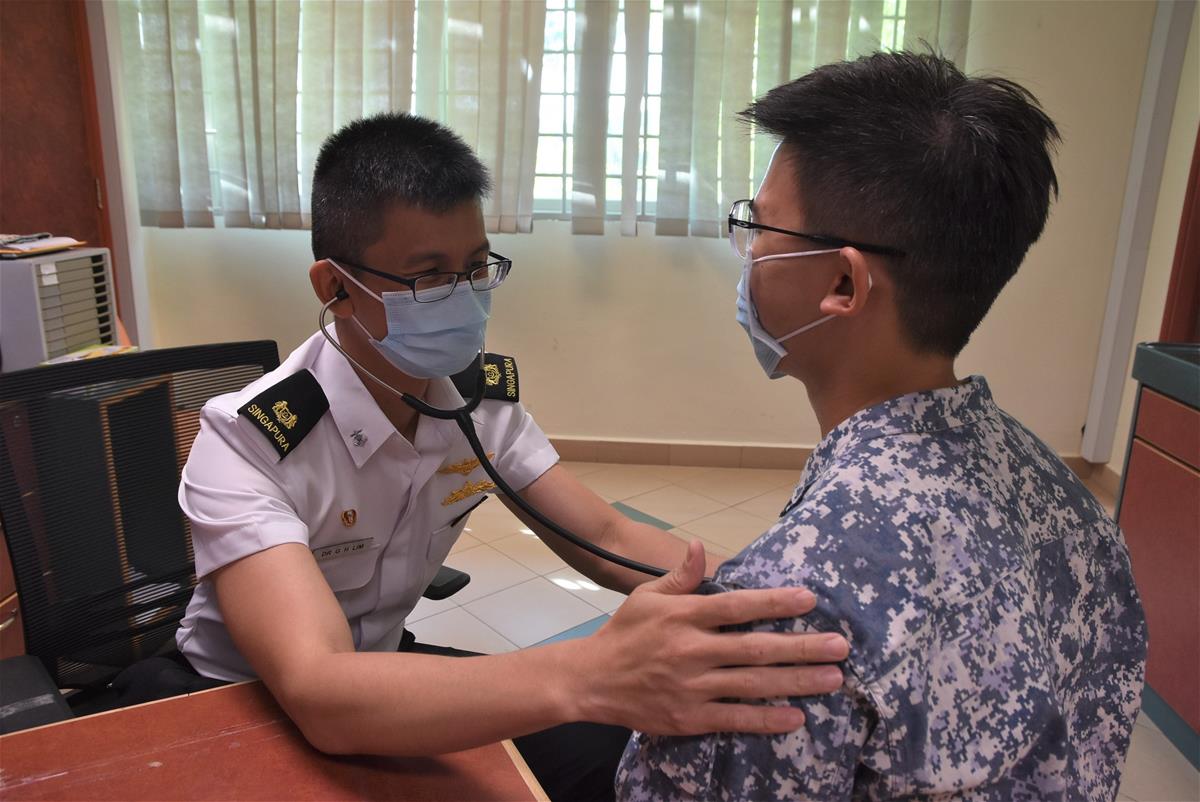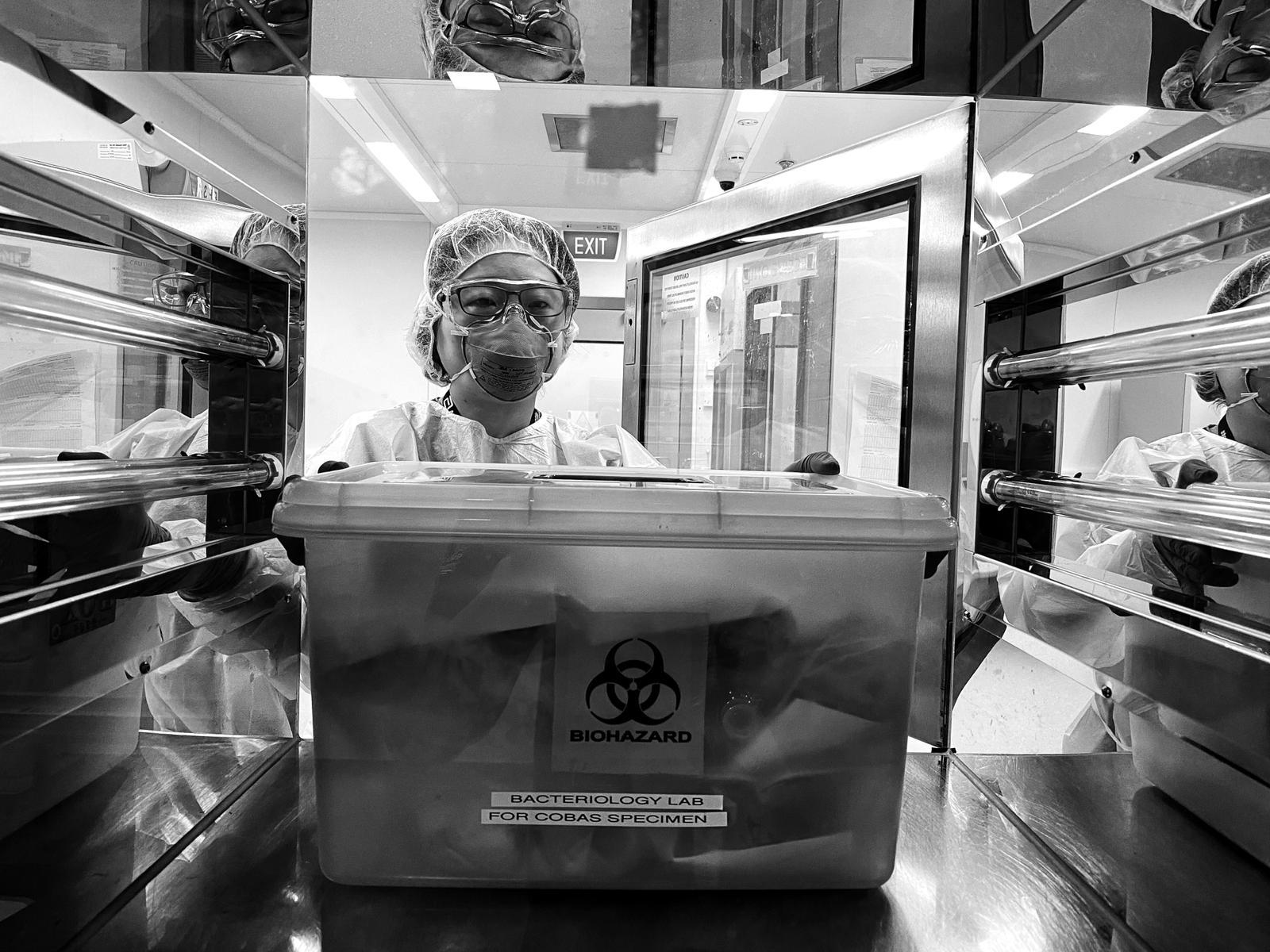Duke-NUS graduands hail from all walks of life and all around the world. They brought with them a diverse range of educational and professional backgrounds that has given them unique perspectives on medicine.
Yet, the desire to improve the healthcare and make a positive impact on the community they serve has been central to the pursuits of Duke-NUS’ Clinicians Plus—all the way from the graduates from inaugural Class of 2011 like Dr Karrie Ko to members of the School’s pandemic cohort such as Dr Lim Gim Hui from the Class of 2020.
In addition to the research-intensive medical training, Duke-NUS fosters compassion and collaboration as well as analytical thinking through its flipped-classroom team-based TeamLEAD teaching pedagogy as well as initiatives such Project DOVE.
Through Project DOVE, which is short for Duke-NUS Overseas Volunteering Expedition—established in 2010—students have been reaching out to neighbouring countries since 2010. In 2019, the Project DOVE team was recognised with a Student Life Award by the National University of Singapore for its significant contribution to the university outside of academia.
Then a medical student at Duke-NUS, Dr Lim Gim Hui, pictured here with villagers from Khe Sanh, drew on his experiences from humanitarian missions to contribute to the success of Project DOVE // Credit: Lim Gim Hui
That year, 18 Duke-NUS students, accompanied by six faculty members and 18 volunteers from Project Vietnam foundation, their in-country partner organisation, served more than 1,000 patients in the rural community of Khe Sanh in Vietnam. They also raised the most money for the project since its inception which they used to improve sanitation at a local preschool.
One of the three project leads that year was Dr Lim Gim Hui, a former recipient of the Duke-NUS Bursary. He drew on his experience from his years of serving with the Singapore Armed Forces to help the team achieve these milestones. Lim had taken part in numerous humanitarian missions while serving with the Singapore Armed Forces, performing roles such as transporting medical personnel and equipment to communities in Indonesia and the Philippines.
Having discharged his duty to deliver supplies and personnel, Lim would tag along with the medics to the field hospitals and observe their craft.
Those experiences changed the direction of his dreams. With a degree in biological science, he wanted to find a way to put this knowledge to good use to better serve the community.
“I saw how impactful healthcare was, especially to communities that were extremely remote and lacked their own healthcare infrastructure,” said Lim.
Growing into Clinicians Plus
Since graduating in the middle of the pandemic, Lim has completed his first year as a house officer training and started on his residency in preventive medicine at the National University Health System.
“Through my residency training, I hope to gain perspectives on problems within our healthcare systems. I also wish to learn to create and implement effective healthcare policies to better the lives of people around me,” he added.
He has also returned to the armed forces as a fully registered Medical Officer serving as Section Head for the Medical Plans and Doctrines Branch in the country’s Navy Medical Services.

Dr Lim Gim Hui is now back with the Navy where he cares for fellow servicemen and women // Credit: Lim Gim Hui
While returning to the Navy may be a home coming of sorts, Lim brings with him new experiences gained through Duke-NUS’ flipped-classroom pedagogy and research-intensive third year in particular.
“Medical school provided me with an understanding of how our healthcare system works. More importantly, Duke-NUS taught me relevant skillsets to think critically and work with teams to design innovative solutions within resource limitations,” he said, crediting the research year in readying him to plan and execute many of the clinical trials he is running now.
Improving lives during the pandemic
Clinician-researcher Dr Karrie Ko, who works in the division of pathology in SGH, had just started on her PhD in microbial genomics and metagenomics when the pandemic struck.
“It was an unforgettable Chinese New Year,” said the Class of 2011 alumnus and former Shaw Foundation Scholarship recipient who graduated top of her class.
Over the holiday weekend as the first cases trickled in, diagnostic capabilities had to be ramped up so that the department could deliver the best testing service to patients and service partners.
With her speciality being in clinical microbiology and sub-speciality in molecular pathology, Ko’s niche skills came in handy when her team had the job of sequencing the genome of every COVID case at SGH to monitor and prevent inpatient clusters.

Dr Karrie Ko at work during the height of the pandemic in 2020 // Credit: Koh Tse Hsien
“We sequenced all the COVID-19 samples to analyse all the genomes so we could better understand how the virus spread and how cases were connected,” said Ko.
Later on, she also took part in research projects to ensure that the right infection control measures were in place to contain the virus within the hospital environment and community care facilities.
“It was extremely rewarding—although tiring at the same time—to directly apply the new knowledge and skills from my PhD to make a positive impact on real-world hospital care. It made me grateful for the Shaw Foundation Scholarship all over again because without it, I wouldn’t be doing any of this,” said Ko.
With all the different backgrounds Duke-NUS alumni come from, it is no surprise that their goals will be vastly different, yet equally interesting.
Drawing on her experience from the pandemic, Dr Ko hopes to deploy microbial genomics to the clinical forefront and build a sustainable surveillance programme for infectious disease detection and control. Her time at Duke-NUS, with fellow students and colleagues of different backgrounds has made her interested in interdisciplinary approaches to making that happen.
“I feel that I’m in a very strange and unique position to make that happen, because I am a clinical microbiologist with a molecular diagnostic interest and, at the same time I’m learning to speak the language of computational scientists,” she said.
For others, their plans are quite literally out of this world. Being a doctor in the armed forces will have Lim complete not just one but three specialisations. In addition to his residency in preventative medicine, he is pursuing specialist training in diving and hyperbaric medicine with the Navy Medical Service, and has plans to pursue aviation medicine to support his air force colleagues who are deployed at sea.
With land, sea and air medicine covered, space is the next frontier Lim.
“Being near the equator, our region provides valuable opportunities for space travel in the near future,” said Lim. “With training in both hyperbaric and aviation medicine will hopefully allow me to better serve my patients in future.”
==========================================================
The above is adapted from an article of the same title that appeared in the 2022 Issue 1 of Medicus.